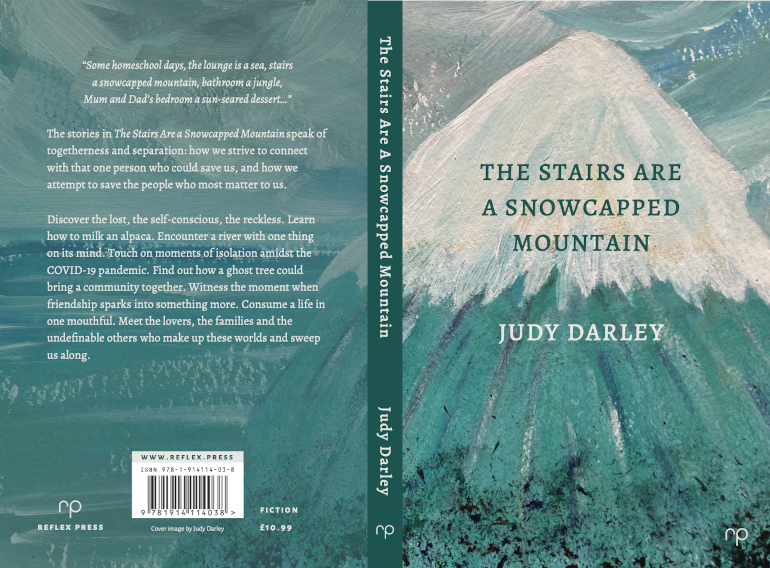 To celebrate the launch of my new short story collection, The Stairs Are a Snowcapped Mountain, I’m hosting a launch party and literary night at Waterstones in Bristol’s Galleries, from 7-9.30pm on Saturday 26th March. It’s open to the public and I’d love you to come along!
To celebrate the launch of my new short story collection, The Stairs Are a Snowcapped Mountain, I’m hosting a launch party and literary night at Waterstones in Bristol’s Galleries, from 7-9.30pm on Saturday 26th March. It’s open to the public and I’d love you to come along!- Date and time: Saturday 26th March 2022, 7-9.30pm
- Locations: Waterstones, 11a Union Galleries, Broadmead, Bristol, BS1 3XD (street entrance)
Free tickets are available here: https://www.waterstones.com/events/book-launch-with-judy-darley-the-stairs-are-a-snowcapped-mountain/bristol-galleries
Here’s the line up:
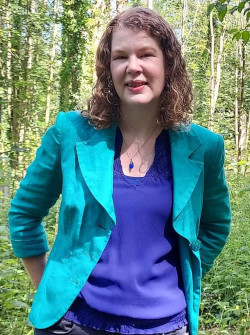 Judy Darley is a British author who can’t stop writing about the fallibilities of the human mind. Her words have been published in the UK, Canada, US, New Zealand and India, including Cypress, The Mechanics’ Institute Review and The Pomegranate. Judy is the author of short fiction collections Sky Light Rain (Valley Press) and Remember Me to the Bees (Tangent Books). The Stairs are a Snowcapped Mountain is her third collection. She is Flash Fiction Editor at Reflex Press and has co-judged competitions for National Flash Fiction Day and Oxford Flash Fiction Prize. You can find Judy on Twitter at @JudyDarley
Judy Darley is a British author who can’t stop writing about the fallibilities of the human mind. Her words have been published in the UK, Canada, US, New Zealand and India, including Cypress, The Mechanics’ Institute Review and The Pomegranate. Judy is the author of short fiction collections Sky Light Rain (Valley Press) and Remember Me to the Bees (Tangent Books). The Stairs are a Snowcapped Mountain is her third collection. She is Flash Fiction Editor at Reflex Press and has co-judged competitions for National Flash Fiction Day and Oxford Flash Fiction Prize. You can find Judy on Twitter at @JudyDarley - Photo credit: Jo Mary Butler Photography
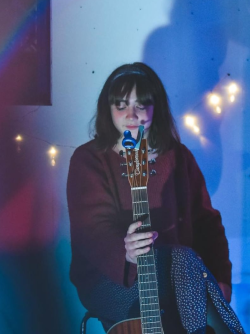 Eve Appleton is a singer songwriter performing in the folk tradition but bringing a fresh, contemporary voice to the genre. Her writing is informed by her own experiences of growing up in a British seaside town, observations of adolescence, and the music and poetry she has discovered, or has been introduced to, over the years.
Eve Appleton is a singer songwriter performing in the folk tradition but bringing a fresh, contemporary voice to the genre. Her writing is informed by her own experiences of growing up in a British seaside town, observations of adolescence, and the music and poetry she has discovered, or has been introduced to, over the years.You can find Eve on Instagram as @eveappletonmusic
Photo credit: Beth Butcher Photography
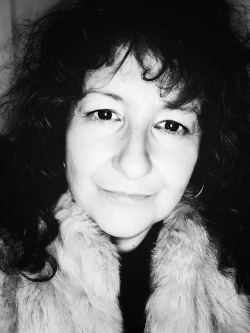 Jo Mary Butler is a poet, singer/songwriter, actress and theatre director. As a founding member of Misplaced Theatre, she recently directed Steven Berkoff’s ‘Decadence’ for the company at the Alma Tavern Theatre, Bristol.
Jo Mary Butler is a poet, singer/songwriter, actress and theatre director. As a founding member of Misplaced Theatre, she recently directed Steven Berkoff’s ‘Decadence’ for the company at the Alma Tavern Theatre, Bristol.Her debut poetry and short fiction collection Hybrid, with original drawings by Harry Simmonds, will be available in Summer 2022.
Photo credit: Jo Mary Butler Photography
-
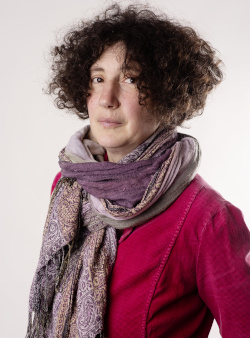 Harriet Kline works part time registering births, deaths and marriages and writes for the rest of the week. Her story Ghost won The Hissac Short Story Competition 2012 and Chest of Drawers won the London Magazine Short Story Competition 2013. She has been broadcast on BBC Radio 4, has a story at Litro online and at shortstorysunday.com. This Shining Life, published by Penguin, is her first novel and she’s slowly working on the next one, to be published in 2024.
Harriet Kline works part time registering births, deaths and marriages and writes for the rest of the week. Her story Ghost won The Hissac Short Story Competition 2012 and Chest of Drawers won the London Magazine Short Story Competition 2013. She has been broadcast on BBC Radio 4, has a story at Litro online and at shortstorysunday.com. This Shining Life, published by Penguin, is her first novel and she’s slowly working on the next one, to be published in 2024.You can find Hartiet on Twitter as @HareandHarriet and on Instagram as harriet_kline.
Photo by Jeni Nott Photography.

Helen Sheppard is a Bristol-based writer and worked as a midwife. Her poetry explores themes of birth, health loss, and those whose voices are often unheard. Events Helen has performed at include Milk Poetry, RTB, Torriano Meeting House and Harvard Medical School. Helen’s work has been Published widely, including These are the Hands and Under the Radar magazine. Her debut poetry collection Fontanelle was published in 2021 by Burning Eye Books. Helen interviews extraordinary poets for her podcast Health Beat Poets, their ‘take’ on Poetry, Health and Community. You can find Helen on Twitter as HelenSheppard7 and on Instagram as helensheppard58Photo credit: Tom Shot Photography
Get in touch!
If you want to know more about my writing, about The Stairs Are a Snowcapped Mountain book launch & literary night or would like a review copy of The Stairs Are a Snowcapped Mountain, please send an email to judydarley (at) iCloud (dot) com. Thanks!
Judy
